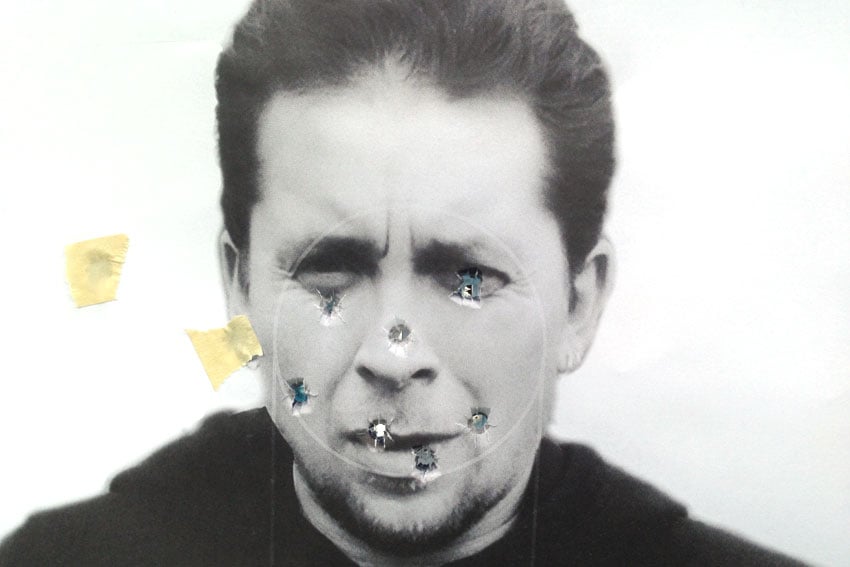
In light of the recent suicide bombings in Belgium, how prepared are you when it comes to taking a high percentage shot? How good of a shot are you when it counts the most?
Good Enough
While there’s still a lot of information making its way to the public on the recent Islamic terrorist attacks in Belgium, one thing comes to mind; are you good enough to make a head shot? While I’m speaking mainly to our domestic Law Enforcement, I’d extend this question to anyone who finds themselves in harm’s way.
Years ago, I was asked about the effectiveness of a head shot from a pistol. There’s no doubt they’ll produce a result, but the question we all wonder is if it’s the result we’re looking for; immediate incapacitation.
It’s a Come As You Are War
Head shots with a rifle tend to be more favorable when aimed at the head for lots of reasons, but the reality is you probably won’t have a rifle with you, so let’s just put that to bed. You’ll likely be forced to respond with a pistol, whether from your duty belt or concealed carry. After all, the main reason we carry a pistol is for convenience first, lethality second.
There are several different strategies floating around the internet on how to deal with this type of situation, but immediately incapacitating the threat is the tactical imperative. Many suicide devices are detonated using a switch, not a “kill” switch, just a switch the wearer depresses at his or her time of choosing.
Welcome to the Nightmare
If you fail to immediately incapacitate, you may find the target still has the ability to depress a button, most likely taped to their hand so as not to be dropped or taken. If you look at the recent bombings you’ll notice the suicide bombers wore gloves. This concealed the switch mechanisms even further, but more importantly, made them inaccessible to bystanders.
So if you fail to immediately incapacitate, it makes sense to consider the target would still be combat effective. In this case, combat effective implies that they’re capable of depressing a switch that’s possibly taped to their hand and concealed with a glove.
What If?
What if you find yourself in this situation? What’s the maximum distance you can guarantee a head shot? I love hearing how folks comment on their ability to make this shot easily at 25 yards. Generating the immediate incapacitation we’re looking for means the target is smaller than the head itself. Basically you’re looking at the base of the brainstem, or about a four inch target.
Now how far can you guarantee that hit? I feel it’s safe to say 10 yards. That’s right, a measly ten yards from an explosive device. While you may want to be much further outside the blast radius, your skill may prevent that luxury. In addition, while I mention head shot in the singular tense, I’d want to place several rounds into the target zone, thus increasing my chances of neutralizing the threat.
Don’t Kid Yourself
All of this places a high demand on the shooter, probably higher than you’ll ever imagine. If you fail to incapacitate and they detonate a bomb, you may be responsible for countless lives loss. Though that may be an eventuality you can’t control, it would suck to know they depressed the switch after your failed attempt.
My point is this, if you haven’t been practicing shooting reduced targets at extended ranges, then don’t kid yourself. All the techniques out there that circumvent marksmanship principles will be of little use in this situation. Does it warrant a change to your training philosophy? Maybe. It means accepting reality and either going with it or doing something different.
Realistic Expectations
One final thing I’d like to mention is target discrimination. Yes, that pesky notion of positively identifying the threat and in this case, a suicide bomber. Early photographs show them in bulky clothing; it’s still spring and current temperatures probably wouldn’t rouse suspicion. How would you know they’re a suicide bomber?
Have you been studying available information regarding mannerisms and appearances? If so, is that enough to justify your head shot? This is an incredibly challenging incident and one we better start preparing for, or at the very least discussing from a realistic capability standpoint.
To my friends in blue, train hard and be ready.
Editor-in-Chief’s Note: Jeff Gonzales was a decorated and respected US Navy SEAL, serving as an operator and trainer who participated in numerous combat operations throughout the world. He now uses his modern warfare expertise as President of Trident Concepts, LLC., a battle proven company specializing in weapons, tactics and techniques to meet the evolving threat. Bringing the same high-intensity mindset, operational success and lessons learned from NSW to their training programs, TRICON has been recognized as an industry leader by various federal, state and local units. Organizations interested in training with TRICON can call 928-925-7038 or visit tridentconcepts.com for more info.